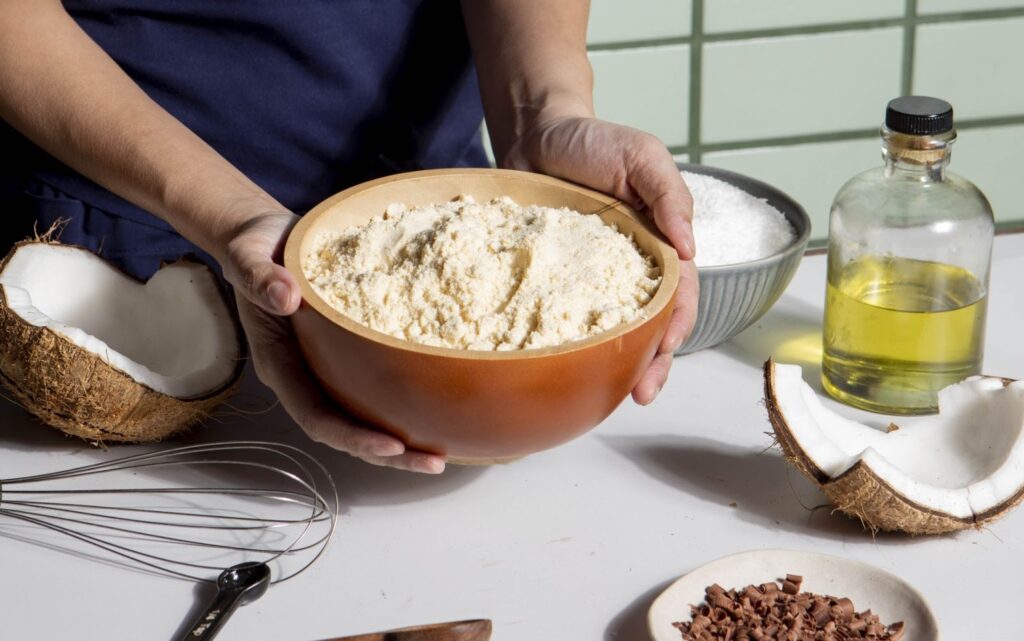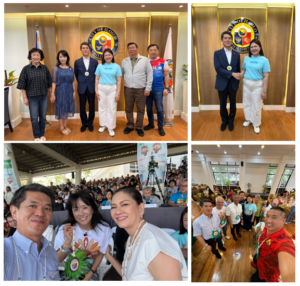
To boost the Philippines’ coconut sector, the Department of Trade and Industry (DTI) has partnered with PUM Netherlands, a Dutch organization specializing in coconut-based enterprises.
This initiative seeks to develop high-value products from coconut husk, as part of the Coconut Farmers Industry Development Plan (CFIDP).
PUM Expert Cees de Kreij, a consultant with over 20 years of experience in the Dutch coconut sector, gave one-on-one sessions on January 22 to coconut farmers and cooperatives engaged in coconut husk processing.
Comprised of volunteer senior business advisors, PUM Netherlands has been facilitating several capacity-building and product development initiatives. Their expertise has already benefited around 25 DTI CFIDP-assisted coconut-based enterprises and coconut farmers in the Davao Region.
Expressing gratitude for the PUM Netherlands’ support in assisting Davao Region’s coconut farmers and coconut-based enterprises, DTI 11 Regional Director Romeo L. Castañaga highlighted the development of new products such as substrate and growing media out of coconut husk, which have significant market demand in Europe.
Currently, Davao Region ranks fourth in terms of areas planted with coconut and the volume of production in the Philippines. Notably, the region also ranks first as a coconut producer, contributing 13% to the country’s total output.
Despite the Davao Region’s robust resources, the coconut industry faces several challenges: low income among coconut farmers; low productivity or yield of coconut trees; inadequate technologies, especially post-harvest facilities; low utilization of coconut and coconut by-products in the domestic and export market; and lack of new and high-value products, such as coconut milk, coconut cream, and coconut water for food.
The regional trade chief acknowledged the existing opportunities, but emphasized the need to address these challenges first, particularly those faced by the beneficiaries.
“We have noted several challenges when venturing into producing and promoting coconut products for horticulture purposes. These range from market access and expansion to technology and innovation, and laboratory facilities,” he said.
As of December 2024, DTI Region 11 has already assisted at least 800 coconut farmers in the Davao Region through the CFIDP. DTI will focus its support on services related to research, marketing, and market promotion.
For this new year, DTI Davao will conduct coconut husk mapping in the region to assess the supply capacity. This effort will also include an industry study to identify potential markets for these husk-derived products.


